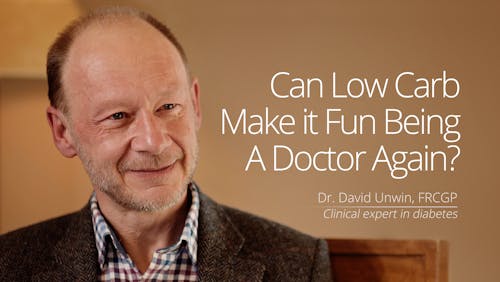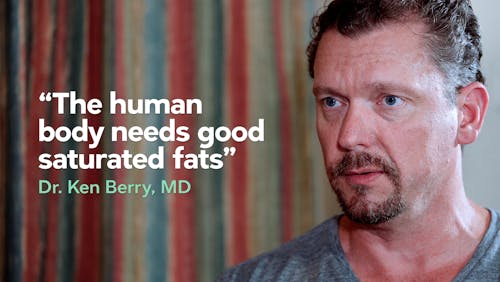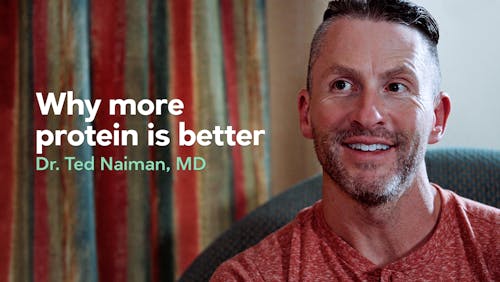Dr. Hampton: Helping our bodies fight disease-causing bugs

Photo: Spencer Bibbs
Dr. Tony Hampton is a family physician on the South Side of Chicago. He is writing a monthly column for Diet Doctor. This is his 11th column.
Our awareness that our health can be suddenly upended by a tiny, microscopic invader has increased during the recent pandemic.
But even without a pandemic, humans have always been vulnerable to getting sick from various organisms. Organisms are everywhere.
That is why in my R.O.P.E acronym for maintaining good health, the “O” stands for organisms. Knowing how we avoid them, and how to protect and support our immune system to fight them, is a key attribute of maintaining good health.
It goes hand-in-hand with good nutrition, and the other elements of protecting your N.E.S.T. that I have described in my previous 10 columns.
Nutrition, exercise, stress/sleep, dealing with thoughts and trauma, all make you healthier. And when you are healthier, you are better able to fight the nasty bugs that come your way.
Good and bad bugs
Of course, there are good and bad organisms. In fact, of the estimated 10 trillion microorganisms that inhabit our body, the vast majority are likely beneficial or at least harmless.
But when it comes to microorganisms, one bad apple CAN spoil the whole bunch.Anyone who has experienced food poisoning, a bacterial infection, or caught a nasty virus doesn’t need to be told that even a minuscule dose of these tiny bad bugs can pack a huge wallop — laying you low for weeks.
The rest of this column is going to focus on the bad bugs — called pathogens. My next column will look at helpful organisms and the burgeoning interest in the microbiome.
Innate immune systems
Let’s begin our discussion about how we fight bad bugs by understanding the difference between our innate and our adaptive immune systems. The innate system is the one we are born with; the adaptive one is the immunity we acquire over our lifetime.
Our innate system uses physical barriers as well as chemical and cellular defenses and is non-specific, in that it attempts to keep all invaders out.
- Physical barriers protect the body from invasion. These include things like our skin, eyebrows, eyelashes, nose hair, etc.
- Chemical barriers are defense mechanisms that can destroy harmful infectious agents. Examples include tears, mucus, saliva, and stomach acid.
- Cellular defenses include inflammation, fever, swelling, clotting, the activity of white blood cells, mast cells, phagocytes, and other types of cells that are generalized, and don’t respond to a single pathogen, but respond to infection and injury to initiate healing.
We can support the “barriers” to infection by keeping our hands clean, using safe cooking and food handling practices, making sure our drinking water is clean, and using other good hygiene measures.
These germ-reducing measures that we personally adopt can do a lot to keep organisms from entering our body in the first place.
Adaptive immunity
Our adaptive immune system is a much more sophisticated system that responds to specific invading organisms. Our adaptive immune system constantly evolves — grows, learns, and changes with us — based on the organisms we encounter in our life.
It is like a special SWAT force that seeks out and destroys pathogens because it has already learned to recognize them as bad guys.
For example, you may get measles once, but you will never have it again. Your adaptive immune system’s B lymphocytes create memory cells. These memory cells will now recognize the measles virus and mount a rapid, robust response, destroying it before it can make you sick again.Of course, we have learned how to let our adaptive immune system “see” a pathogen before it makes us sick. Vaccines show our adaptive immune system small, harmless or weakened pieces of pathogens so it can recognize them, and eliminate them, before infection takes hold.
Waning immunity
Some vaccines — like polio, mumps, and measles — generally work for life. Others like whooping cough (pertussis) and diphtheria may be given in infancy and then updated 10 years later. Vaccines for tetanus should be “boosted” or updated every 10 years or so all through your life.
However, some pathogens evolve quickly. They may mutate new outer appearances to slip by the adaptive SWAT team forces.
That is why for some rapidly reproducing viruses, like the flu virus, your immunity may wane and you may get a bad flu every few years, if you don’t get an annual flu shot to top up your immunity.
The coronavirus is also a rapidly evolving virus, similar to the flu virus.
Talking to my patients about immunity
In my predominantly African American medical practice, I am often trying to explain to my patients, as simply as I can, how our innate and adaptive immune systems work. I generally encourage every patient to get all recommended vaccines.In my last column, I told you about my patient “Nancy,” a 53-year-old single mom of two adult boys. While Nancy is a composite, I have many patients just like her.
Nancy has metabolic syndrome, prediabetes, high blood pressure, and obesity — all of which make her more susceptible to worse outcomes if she gets sick from a pathogen. But many African Americans harbor suspicion and lack of trust against mainstream medicine.
To understand more about this issue of lack of trust of medicine among African Americans, check out my podcast #31 with Rashid Johnson, the African American president of the hospital where I work. You can listen via YouTube. (Additionally, consider subscribing to my YouTube channel for more intriguing conversation while learning more concepts related to protecting your NEST.)
So it is not surprising to me that Nancy is vaccine-hesitant. She thinks she can avoid getting sick from common pathogens by doing what she can to improve her innate immunity – hand washing, staying away from other sick people, and eating a low-carb diet to reduce her blood sugar, inflammation, and high blood pressure. And indeed, all this can help.
When Nancy comes to see me, I describe her innate system as if she has a bodyguard sitting at her kitchen table. If a “bad bug” breaks in, it might be able to defend her, but it might be overwhelmed. The SWAT team created by a vaccine is like having her hallways and building entrance constantly patrolled.
Nancy decides, however, that she is still not comfortable betting vaccinated. I don’t try to coerce or berate her. I let her decide, but I provide the best information I can to help her understand the pros and cons of her decision.
Protecting your NEST can help immunity
As I mentioned at the top, focusing on the letters of the N.E.S.T acronym can help support your innate and adaptive immune systems so they are stronger. The citations I link to are randomized controlled trials providing the highest standard of clinical research.
- Nutrition: A Ketogenic diet may enhance immune function. A study found the diet improved human T lymphocyte function, and increased the formation of memory T cells. Intermittent fasting may also enhance immune function.1
- Exercise: Regular, moderate to vigorous physical activity is associated with reduced risk of community-acquired infectious diseases and infectious disease mortality. As this study found, exercise may enhance the first line of defenses of the immune system, and increase the potency of vaccination.
- Stress reduction: Meditation may reduce stress and enhance immunity. One study suggests possible effects of mindfulness meditation on specific markers of inflammation, cell-mediated immunity, and biological aging, but these results are tentative and require further replication.
So do your best to bolster both your innate and your adaptive immune systems to protect yourself from infection from harmful organisms.
Until next time, remember to protect your N.E.S.T.!
More with Dr. Hampton
More with low-carb doctors
However, we have to acknowledge that improving one specific aspect of the immune system, like memory T cells, does not guarantee that it will also mean a decrease in infections. ↩














